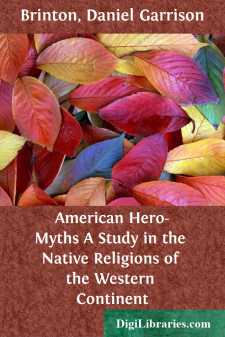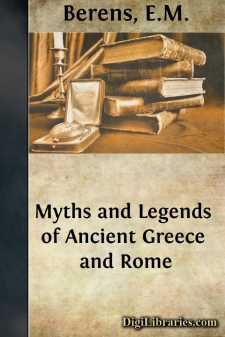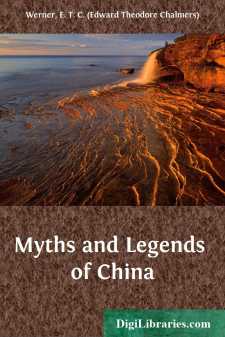Social Science
Social Science Books
Sort by:
PREFACE The period in which the story of The World's Desire is cast, was a period when, as Miss Braddon remarks of the age of the Plantagenets, "anything might happen." Recent discoveries, mainly by Dr. Schliemann and Mr. Flinders Petrie, have shown that there really was much intercourse between Heroic Greece, the Greece of the Achaeans, and the Egypt of the Ramessids. This connection,...
more...
THE EDITOR'S PREFACE. The late Sir James Simpson, in the midst of his anxious professional labours, was wont to seek for refreshment in the pursuit of subjects of a historical and archæological character, and to publish the results in the Transactions of different Societies and in scientific journals. Some of these papers are now scarce, and difficult of access; and a desire having been expressed...
more...
by:
Thomas Clarkson
THOUGHTS, &c. I know of no subject, where humanity and justice, as well as public and private interest, would be more intimately united than in that, which should recommend a mitigation of the slavery, with a view afterwards to the emancipation of the Negroes, wherever such may be held in bondage. This subject was taken up for consideration, so early as when the Abolition of the slave trade was...
more...
Introduction Ancient Babylonia has made stronger appeal to the imagination of Christendom than even Ancient Egypt, because of its association with the captivity of the Hebrews, whose sorrows are enshrined in the familiar psalm: In sacred literature proud Babylon became the city of the anti-Christ, the symbol of wickedness and cruelty and human vanity. Early Christians who suffered persecution compared...
more...
by:
Jacob Bryant
PHŒNIX and PHŒNICES. As there has been much uncertainty about the purport and extent of these terms; and they are of great consequence in the course of history; I will endeavour to state their true meaning. Phoinic, or Poinic, was an Egyptian and Canaanitish term of honour; from whence were formed Φοινιξ, Φοινικες, Φοινικοεις of the Greeks, and Phoinic, Poinicus, Poinicius of...
more...
CHAPTER I. INTRODUCTORY. SOME KIND OF RELIGION FOUND AMONG ALL MEN--CLASSIFICATIONS OF RELIGIONS--THE PURPOSE OF RELIGIONS--RELIGIONS OF RITE AND OF CREED--THE MYTH GROWS IN THE FIRST OF THESE--INTENT AND MEANING OF THE MYTH. PROCESSES OF MYTH-BUILDING IN AMERICA--PERSONIFICATION. PARONYMS AND HOMONYMS--OTOSIS--POLYONOMY--HENOTHEISM--BORROWING--RHETORICAL FIGURES--ABSTRACT EXPRESSIONS. ESOTERIC...
more...
INTRODUCTION The church and the school are the eyes of the country community. They serve during the early development of the community as means of intelligence and help to develop the social consciousness, as well as to connect the life within the community with the world outside. They express intelligence and feeling. But when the community has come to middle life, even though it be normally...
more...
by:
E.M. Berens
PART I.—MYTHS. INTRODUCTION. Before entering upon the many strange beliefs of the ancient Greeks, and the extraordinary number of gods they worshipped, we must first consider what kind of beings these divinities were. In appearance, the gods were supposed to resemble mortals, whom, however, they far surpassed in beauty, grandeur, and strength; they were also more commanding in stature, height being...
more...
Chapter I The Sociology of the Chinese In spite of much research and conjecture, the origin of the Chinese people remains undetermined. We do not know who they were nor whence they came. Such evidence as there is points to their immigration from elsewhere; the Chinese themselves have a tradition of a Western origin. The first picture we have of their actual history shows us, not a people behaving as if...
more...
by:
Thomas Clarkson
CHAPTER I. No subject more pleasing than that of the removal of evils—Evils have existed almost from the beginning of the world—but there is a power in our nature to counteract them—this power increased by Christianity—of the evils removed by Christianity one of the greatest is the Slave-trade—The joy we ought to feel on its abolition from a contemplation of the nature of it—and of the...
more...











